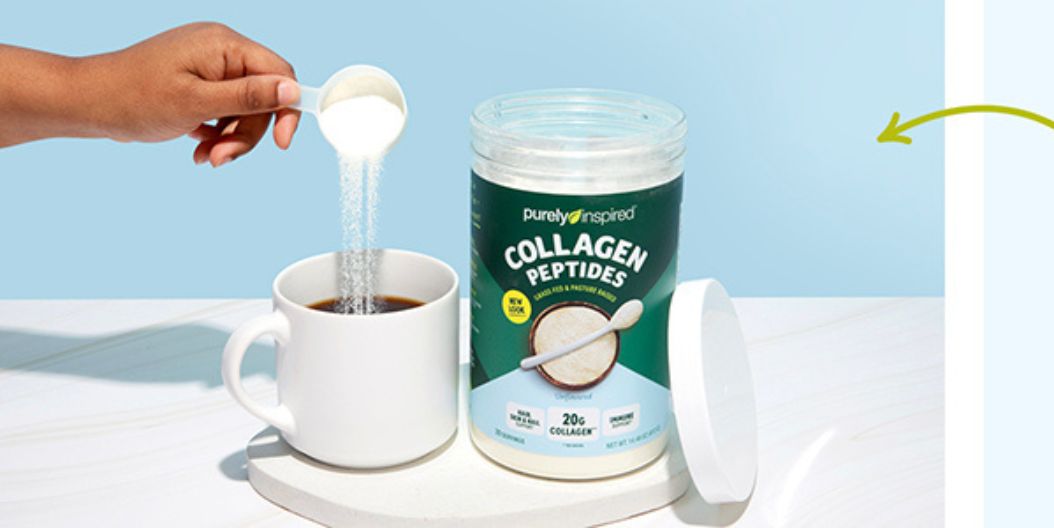Every human needs protein, and no one can ever underestimate its power when it comes to building and repairing muscles. Approximately 20% of our bodies are made up of protein, so calling it the 'building block of life' is just fair.
Also, if you have enough protein in your body, your desire to eat late-night snacks is reduced.
Before the first bodybuilding competition in 1901, protein was already the crowd's favorite macronutrient, especially for the fitness and health community.
Today, dietary protein can be found in many supplements that help bodybuilders, cross-trainers, and other fitness-inclined people achieve their goals.
More so, with the rising demand for protein supplements, two options have emerged as the frontrunners: plant-based protein and whey protein.
But before we head into that, let's delve into the definition of protein and the benefits it provides!
Shop & Save on Organic Protein
What is Protein?
In a nutshell, proteins are the 'talented workers' in our bodies as they ensure muscle building and repair runs smoothly.
Protein is a large molecule made up of smaller units called amino acids. These amino acids are linked together in a specific sequence to form a chain, and this chain then folds into a unique protein.
Dietary protein is found in lots of different foods like meat, fish, eggs, beans, and even peanut butter (yum!). These amino acids come together to form the structures and functions of your body.
Imagine that the assembled house structure represents a protein. Think of amino acids as individual building blocks, similar to bricks. Each amino acid is like a unique piece, and 20 different types of amino acids can be used to build proteins.
The sequence in which these amino acids are arranged is like the specific order in which you connect the bricks to create a particular structure. The specific arrangement of these building blocks gives each protein its unique structure and function, allowing it to carry out vital roles in the human body.
But that's not all.
Proteins also play a vital role in keeping you strong.
So, the next time you eat a delicious protein-packed meal, remember that you're not just satisfying your taste buds; but you're also giving your body the essential nutrients it needs to keep your muscles building and repaired.
Shop & Save on Best Collagen Supplements
Benefits of Protein
Did you know that there are over 10,000 different proteins that help to keep you that way?
Each of these provides benefits (some of them you may not know about) that you should know. So, here are the diverse functions of protein in the body: they can act as enzymes, facilitating chemical reactions; serve as structural components in cells, tissues, and organs; and function as messengers, transmitting signals between cells.
Protein can help you feel satisfied, allowing you to reduce your overall calorie intake. More so, the digestion and absorption of protein require more energy than other macronutrients.
The things that protein can do to our bodies are truly unique. However, we want you to know that the benefits of this nutrient can vary depending on your age, activity level, and personal needs.
Plant Vs. Whey Protein
Ah, finally, the best part. At this point of the article, let's delve into one of the most common debates: Plant Vs. Whey Protein. Without further ado, let's get right into it!
Whey protein, derived from milk, is a complete protein containing all nine essential amino acids. It is highly regarded for its excellent amino acid profile – and unlike casein protein (which is also derived from milk), whey protein is rapidly digested and quickly absorbed by our bodies.
Meaning, if you're a fitness enthusiast who is looking to build muscle, enhance workout recovery, or meet your daily protein requirements efficiently, whey protein is the ideal choice for you.
On the other hand, plant-based protein is derived from sources like peas, soy, hemp, rice, and other plant-based ingredients. Plant proteins often have a different amino acid profile compared to animal-based proteins like whey.
Some plant proteins may lack certain essential amino acids or may have them in lower amounts. Though plant protein may not contain all the essential amino acids like whey, combining different plant protein sources, for example, rice and beans, can create a complete amino acid profile.
Plant Vs. Whey Protein: Which one is for you?
To state the obvious, plant protein is often favored by people following a vegan-friendly or vegetarian-friendly lifestyle.
Whey protein is known for its fast absorption, providing a quick influx of amino acids to support muscle repair and growth.
Contrarily, due to their structure and fiber content, plant protein tends to be more slowly digested. This results in a sustained release of amino acids into your bloodstream.
Ultimately, the choice between plant and whey protein comes down to personal preference, your dietary needs, and fitness goals.
For instance, if you are looking for a convenient and highly bioavailable protein source with a complete amino acid profile, whey protein is the way to go! But plant protein can be a suitable alternative.
Muscle building and recovery: Which protein is more effective?
In short-term studies, whey protein may have an edge because it has a higher leucine and essential amino acid content and a faster absorption rate than plant protein.
No wonder it is a popular choice among bodybuilders and athletes who want to optimize their muscle growth and repair.
In terms of effectiveness in muscle building and recovery, long term training studies have shown that both plant-based and animal-based protein, such as whey, can equally support muscle building and recovery when consumed in adequate amounts.
That being said, plant-based protein is still an effective option for those who prefer a vegan-friendly or vegetarian-friendly lifestyle or have specific dietary restrictions.
Make the right choice based on your needs
Plant protein offers various options to those with a vegan-friendly or vegetarian-friendly lifestyle. At the same time, whey protein is derived from animal sources (often grass-fed) and is known for its high bioavailability.
The key takeaway I want you to remember is the importance of a well-rounded protein intake. So regardless of whether you choose plant over whey – or the other way around, ensure you are consuming enough protein to meet your needs.
To determine the best protein sources based on your goals, consult with a healthcare professional or registered dietitian.
Final Thoughts
Whether you're looking for a plant-based alternative or an athlete seeking muscle recovery, understanding the differences between plant vs whey protein sources is key. Happy protein consumption, and here's to a stronger you!
Shop & Save on Premium Organic Supplements
Read Some of Our Best Blogs:



